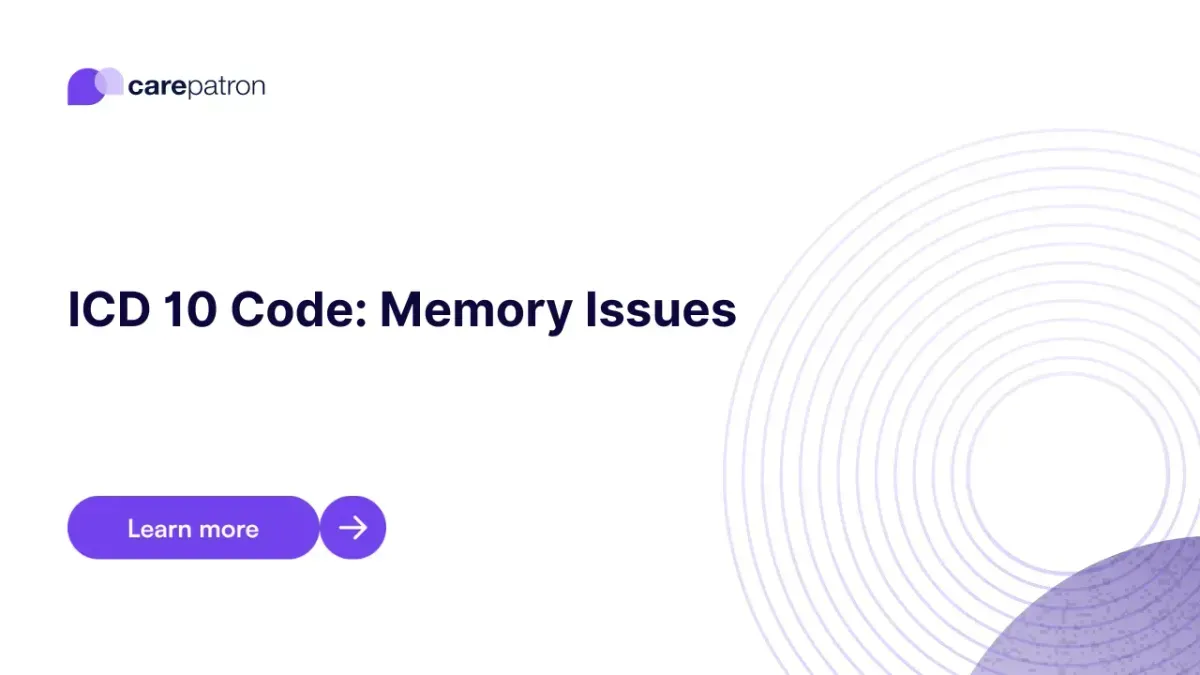
Memory Issues ICD-10-CM Codes
Dive deep into the comprehensive guide on ICD-10-CM codes for memory issues. Understand the codes, their billability, and their clinical implications.
Use Code
Commonly asked questions
No, memory issues can be a part of normal aging due to stress, lack of sleep, or other temporary factors. However, a healthcare provider should evaluate consistent or worsening memory problems.
Yes, a balanced diet, regular exercise, adequate sleep, mental stimulation, and stress management can help improve memory and cognitive function.
Diagnosis involves a thorough medical evaluation, including a physical examination, blood tests, cognitive tests, and sometimes brain imaging.
EHR and practice management software
Get started for free
*No credit card required
Free
$0/usd
Unlimited clients
Telehealth
1GB of storage
Client portal text
Automated billing and online payments
